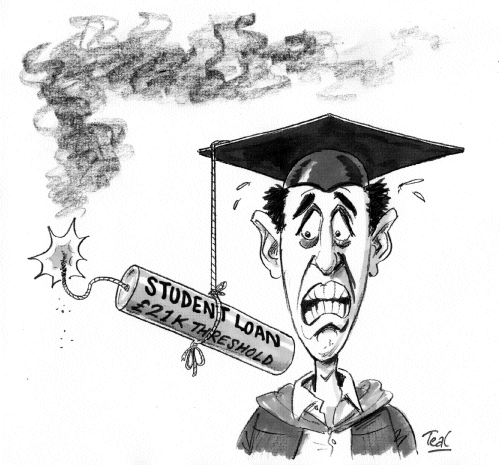Student loans were introduced in 1998 at the same time as tuition fees were imposed for most of those in further education. The Student Loan Company (SLC) was set up to provide and administer loans, and currently employs nearly 2000 people. It was very badly run from the start though, and in 2010 both the CEO and the chairman were forced to resign. There was further scandal in 2012 when it was revealed that the new CEO was saving tens of thousands of pounds through an ‘aggressive’ tax avoidance scheme. Things seem to have settled down though and the focus is on amounts of loan and the repayment terms. These have inevitably become involved in trying to cope with the many types of courses and indeed, the many types of student.

Broadly though, at outset the interest rate on a student loan was RPI, but this has now risen to RPI plus 3%, which is not particularly competitive in the current market place. The maximum loan is £9,000 per year. Repayments are automatically taken from graduates salaries by their employer as soon as earnings exceed £21,000 per annum. The repayments are 9% of any earnings over £21,000 so, for example, if you earn £30,000 pa you will be repaying £810 a year. By any standards this is pretty onerous, and with an average degree from a middle of the road university being no guarantee of immediate, profitable employment, the merits of entering further education are not cut and dried. Moreover, a couple of kids in extended further education can play havoc with a family’s financial planning.
[hr]
The above is the lead article in our latest monthly News Notes – June 2017. Other topics in this edition include:
- FCA
- Mini Bonds
- Home Scams
- MiFID II Tracked Changes
Haven Risk Management : FCA Compliance Consultants
